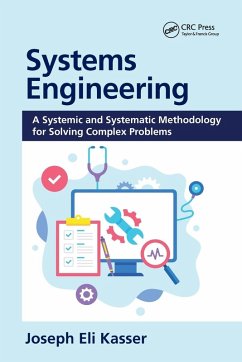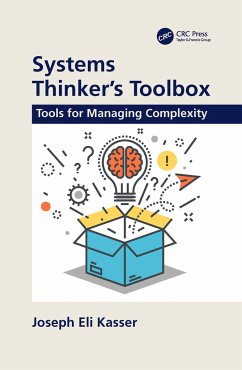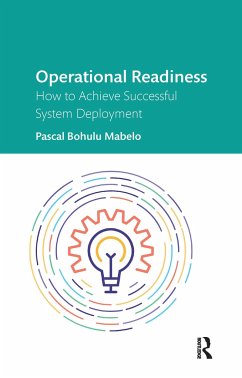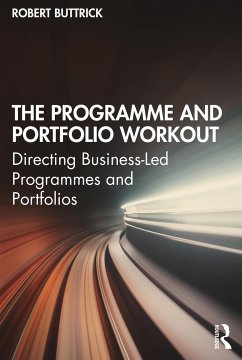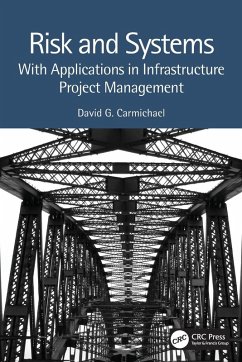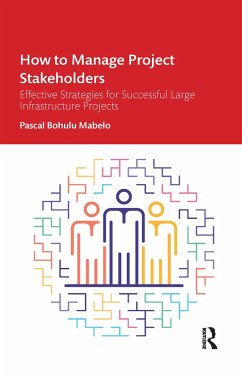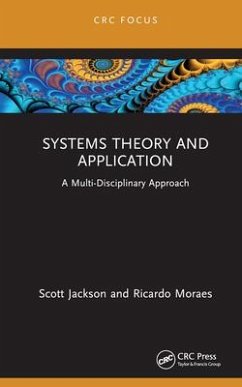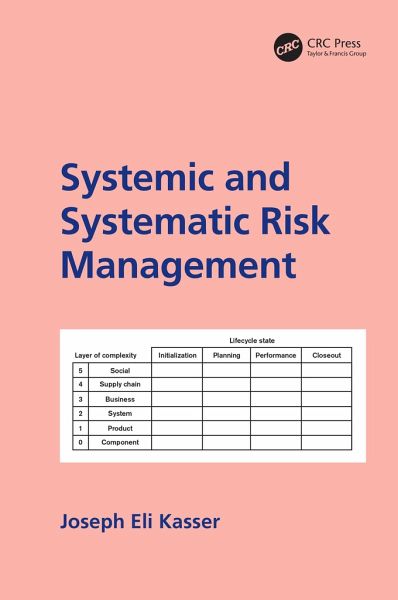
Systemic and Systematic Risk Management
Versandkostenfrei!
Versandfertig in 6-10 Tagen
57,99 €
inkl. MwSt.
Weitere Ausgaben:

PAYBACK Punkte
29 °P sammeln!
This book discusses risk management as it applies to problem-solving for simple, complex and wicked problems faced by policy creators and implementors, project managers and systems engineers in the context of policies, large engineering projects (LEPs), projects and systems. When applying systems thinking to risk management, it can be seen that risk management applies to almost every action taken in daily life. This book:Introduces the systems approach of integrating risk management into policy creation and implementation, project management and systems engineering, such as the risk framework ...
This book discusses risk management as it applies to problem-solving for simple, complex and wicked problems faced by policy creators and implementors, project managers and systems engineers in the context of policies, large engineering projects (LEPs), projects and systems. When applying systems thinking to risk management, it can be seen that risk management applies to almost every action taken in daily life. This book:
Introduces the systems approach of integrating risk management into policy creation and implementation, project management and systems engineering, such as the risk framework and the Firm Fixed Price (FFP) contract with penalties and bonuses.
Introduces a number of out-of-the box concepts building on the application of the systems thinking tools in the system thinker's toolbox.
Points out that integrating risk management into policy and project management and systems engineering is just good management and engineering practice.
Discusses the flow of risk in a policy from creation through implementation via LEPs and simpler projects, identifying where risks arise and where they should be dealt with.
Presents the risks in the relationship between policy creation, implementation, project management and systems engineering.
Discusses risks throughout the policy implementation process and shows how the nature of risks changes from political to financial to technological as implementation proceeds.
Discusses managing complexity and specifies the minimum number of elements in a system for it to be defined as, and managed as, complex.
Points out that in most instances the traditionally ignored major implementation risk is that of poor performance by personnel.
Shows how to proactively incorporate prevention into planning in order to prevent risks, as well as how to mitigate them when they occur.
Introduces the systems approach of integrating risk management into policy creation and implementation, project management and systems engineering, such as the risk framework and the Firm Fixed Price (FFP) contract with penalties and bonuses.
Introduces a number of out-of-the box concepts building on the application of the systems thinking tools in the system thinker's toolbox.
Points out that integrating risk management into policy and project management and systems engineering is just good management and engineering practice.
Discusses the flow of risk in a policy from creation through implementation via LEPs and simpler projects, identifying where risks arise and where they should be dealt with.
Presents the risks in the relationship between policy creation, implementation, project management and systems engineering.
Discusses risks throughout the policy implementation process and shows how the nature of risks changes from political to financial to technological as implementation proceeds.
Discusses managing complexity and specifies the minimum number of elements in a system for it to be defined as, and managed as, complex.
Points out that in most instances the traditionally ignored major implementation risk is that of poor performance by personnel.
Shows how to proactively incorporate prevention into planning in order to prevent risks, as well as how to mitigate them when they occur.





